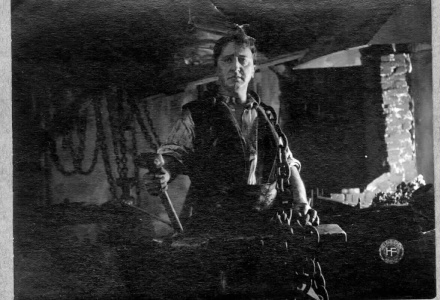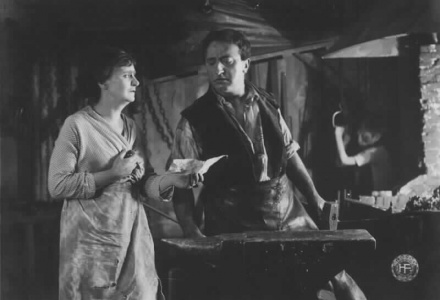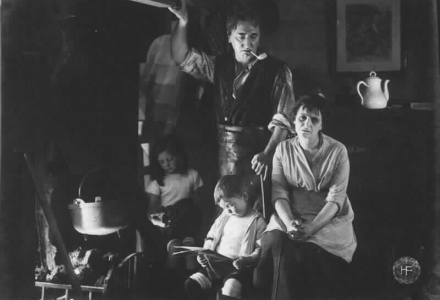Schakels
Summary
In a prologue, Pancras Duif works hard as a blacksmith to support his ailing wife and their young children. While working on a roof, Pancras is saved from falling to his death by his friend Jacob Dulk.
Twenty-four years later, the widowed Pancras has worked his way up and is the chairman of the board of directors of "De Schakel", the factory of which his eldest son Henk is the manager. Pancras, no longer surrounded by his children, decides to employ a housekeeper. With the arrival of Marianne, who claims to be a widow, Pancras once more experiences the joy of living. Marianne's nursing of Pancras during a lengthy illness draws the young woman and the old man together. When Pancras proposes marriage, Marianne confesses that she came to him with false references and that she is the unmarried mother of a little boy whom she has been obliged to put in a boarding house. Nevertheless, Pancras accepts both her and the child.
Duif's youngest son Toontje, a student squandering his father's money instead of studying, comes home and is alarmed when he hears about his father's intention to re-marry. Rummaging in his father's bureau in search of cigars, Toon comes across the papers Marianne gave to Pancras after her confession. Toon and his brothers decide that the marriage must be prevented and, calling in a psychiatrist who is willing to help them, try to have their father declared incapable of managing his own affairs. The sons grant neither their father nor Marianne any rest, and the young woman decides to leave the house. The sicknes of Marianne's little son brings Pancras and Marianne closer than ever together. Pancras is immovable: despite the opposition of his family and the psychiatrist's advice, Marianne and her boy will stay with him.
Information
Images
Cast
Actor
- Sally, a merchant
- Toontje Duif, Pancras' son
- Jan Duif. Pancras' son
- Pancras Duif
- Gerrit Dulk, Jacob's son
- Jacob Dulk
- Margiet, Jan Duif's wife
- Henk Duif, Pancras' son
- Toontje's girlfriend
- Frans, Marianne's little son
- Dr. Van Rijn, a psychiatrist
- Wife of Pancras Duif
- Marianne
Crew
- Set dresser
- Director
- Producer
Technical notations
Resources
G. Donaldson, Of Joy and Sorrow. A Filmography of Dutch Silent Fiction, Amsterdam (1997), pp. 189-190
R. Bishoff, Hollywood in Holland Ruud Bishoff, Amsterdam (1988) p. 90, p. 132
De Bioscoop-Courant No. 16, 17 januari 1919, p. 45
De Film-Wereld No. 48, 1918, p. 6
De Film-Wereld No. 51, 1918, p. 7
De Film-Wereld No. 14, 1919, pp. 4-5
De Film No. 59, 5 maart 1920, p. 1596
Kunst en Amusement No. 3, 1920
Kunst en Amusement No. 10, 1920
Kunst en Amusement No. 47, 1920
Kunst en Amusement No. 49, 1920
Algemeen Handelsblad, 8 januari 1920
more information
If you are looking for more material from our collection, please contact Film Sales:
sales@eyefilm.nl
phone +31 (0)20 5891 426








